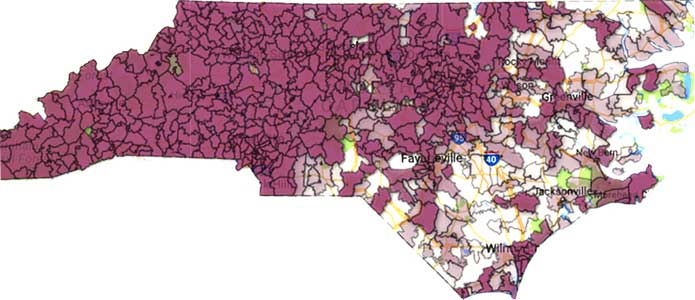



You've Got Friends In Crawl Spaces™

Radon Inspection Services

What is Radon?
Radon is a naturally occurring colorless and orderless radioactive gas which is formed when uranium decays in the soil. Uranium is in geological formations throughout North Carolina. When homes or other buildings are built on top of these geological formations, radon is pulled into the home and can concentrate to dangerous levels. Exposure to radon gas has been found to cause lung cancer.
Where is Radon found in NC?
Nearly one out of every 15 homes in the U.S. is likely to have a high level of radon. Homes in all 100 counties of N.C. have tested at high levels for radon. The only way to know if your home has a radon problem is to test it.
Why should I be concerned about Radon?
Breathing In radon is the second leading cause of lung cancer after smoking. Radon is the likely cause of more than 21,000 lung cancer deaths each year in the U.S. In 2015, lung cancer was the leading cause of cancer deaths in N.C.
How does Radon cause lung cancer?
Radon gas decays into radioactive particles that can get trapped in your lungs when you breathe. These particles break down and release small bursts of energy. This can damage lung tissue and lead to lung cancer over the course of your lifetime. Not everyone exposed to high levels of radon will develop lung cancer, however the risk for lung cancer is increased.
What are your chances for getting lung cancer from Radon?
Each one of the following influences your risk:
- Level of Radon in your home
- The amount of time you spend in your home
- If you are a smoker of tobacco or have ever smoked tobacco
- If you are exposed to secondhand smoke.

How does Radon get into a home?
Radon can rise from the rocks in the ground, through the soil, and to the air above. It comes into your home through cracks and holes in the foundation. The radon becomes trapped in your home. This can happen in new and old homes, homes with or without basements, and in high-rise and multi-family buildings. Underground well water can transport radon from the soil into the house.
Is Radon only measured in homes?
No. Radon can get into any type of building. You and your family are most likely to be exposed at home because you spend most of your time there.
What is considered a high level of Radon in the home?
The amount of radon in the air is measured in “picocuries per liter of air,” or “pCi/L.” A radon level in the home between 2 and 4 pCi/L is considered moderate risk and over 4 pCi/L is considered high risk for your health.
I am buying/selling a home. How do I get a property tested for Radon?
There are no laws in N.C. regarding radon testing. The N.C. Radon Program recommends that you hire a certified radon contractor like Home Inspection Professionals – H.I.P.. This will give you reliable test results quickly. If you get your water from a well, you can test your groundwater for radon with a certified laboratory. Visit www.ncradon.org to find a certified radon tester.
What if the Radon levels are high in my home? Can my home be fixed?
The EPA (U.S.Environmental Protection Agency) recommends fixing homes that have an average radon level over 4 pCi/L. The EPA suggests you consider fixing your home if it tests between 2 and 4 pCi/L. Most homes can easily be fixed to bring the radon levels below 4 pCi/L. Lowering high radon levels requires special knowledge and skills. Pick a contractor who is trained to fix radon problems. The National Radon Proficiency Program or the National Radon Safety Board verifies trained contractors. Visit www.ncradon.org for links.
How do I fix my home if the test show there is a high level of Radon in water?
The N.C Division of Public Health recommends testing well water for radon. Its experts say you should fix well water that tests high for radon. If the radon level is high in the well water, a second test for other types of radioactive particles like uranium and radium should be done. Select a contractor like Home Inspection Professionals – H.I.P. who is trained to fix radon problems. Contact your county health department’s environmental health program for more information.
What will fixing my home cost me?
In 2011, the average cost for fixing a radon problem in an existing home was $1,500. The average cost to include a radon reduction system when building a new home was $800. The cost for a private well water radon treatment system ranges between $1,500 – $5,000. Visit www.ncradon.org to learn more about building Radon Resistant New Construction.
Will a Radon reduction system impact the sale of my home?
Radon reduction systems have been installed in homes across N.C. since 1996. It is commonplace for national home building companies to install Radon Resistant New Construction in their new homes. Having a radon system in your home has not caused any problems for home sales.
Source: NC Department of Public Health, NC Department of Health and Human Services
 Discount for Active & Retired Military, Veterans, Police, Fire, EMS and K-12 Teachers
Discount for Active & Retired Military, Veterans, Police, Fire, EMS and K-12 Teachers

